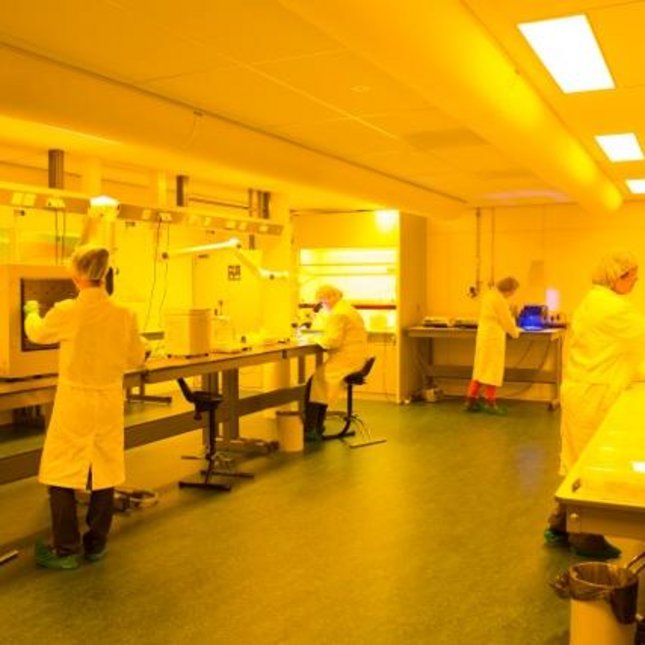
Advanced products such as mobile phones and modern (bio-) medical devices are manufactured using special, modern technologies. These micro-fabrication methods make it possible to structure and combine materials on a (sub) micrometer scale. Knowledge and experience with these methods is essential for the advanced manufacturing industry, e.g. at companies like ASML, NXP, Philips, but also many small companies developing sensors, actuators, and other advanced components and devices. In this course, you will learn about the most important methods; the principles, advantages, and disadvantages, will be explained. As part of the course, you will design, make, and test a device yourself in the TU/e Microfab Lab.
Content of the Course
- scaling and mamufacturing
- microscopic imaging and measurement techniques
- thin film deposition
- lithography, etching
- soft lithography
- micro molding techniques
- additive manufacturing, 3D printing
- mechanical machining methods
- laser microfabrication with various lasertypes and materials
- applications
- practical sessions: design, fabricate, and test a microsystem
Learning objectives
- Learn about microfabrication methods and their advantages/disadvantages
- Learn how to choose the most suitable microfabrication method for a given application.
- Practice with applying the knowledge to design, make, and test a micro-device.

Teachers
Jaap den Toonder (lecturer)
Regina Luttge (lecturer)
Willie ter Elst (instructor)
Sheen SahebAli (instructor)
Contact
-
prof.dr.ir. Toonder, J.M.J. den